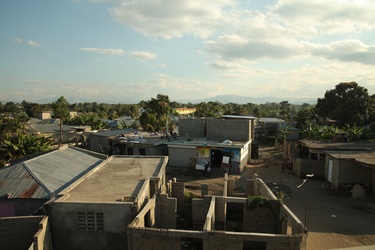Bryant Myers, professor of Transformational Development at Fuller Theological Seminary has written an insightful book called, Walking with the Poor – Principles and Practices of Transformational Develpment.
I would describe this book not as a ‘how to’ but more as a holistic, long-term approach that helps development workers think differently about poverty and helps them create sustainable solutions to overcome the key factors that create poverty.
Myers tries to answer a relevant question, “What is poverty?” How you answer that question will determine your course of action. For example: if poverty is not having clean water, we react to solve that problem. If we are only concerned with needs in this example we will only see lack of water. Without further thought, lack of water is the cause of poverty and providing water is the answer. However, behind the needs are issues such as ownership of the water. If this is the cause of the lack of water, then the response is to work on ownership and access. Yet behind those issues there are structures, such as caste that influences who gets the water and which often create insurmountable barriers to access. Behind structures are groups…behind groups are ideologies. (p. 82). Understanding all of these issues helps us to create valid and long term solutions to help the poor.
A great example of different approaches to these issues is found in this article, Should Africa Dump Agriculture for the Sake of Peace and Stability?
Poverty is a complicated social issue involving all areas of life – physical, personal, social, cultural, and spiritual (p. 81) and we would do well to examine them if we truly want to help people in poverty.
Take a look at this simple chart. It reflects the view people maintain about why people are poor and their inevitable response:
VIEW OF CAUSE PROPOSED RESPONSE
_____________________________________________________________________________
The poor are sinners Evangelism and uplift
The poor are sinned against Social action: working for justice
The poor lack knowledge Education
The poor lack things Relief/Social Welfare
The culture of the poor is flawed Become like us/ours is better
The social system makes them poor Change the system
For years I’ve fought the views of people in the first category – the poor are sinners and need the gospel. That may very well be true but if our ‘help’ stops there, it is a very short-sighted approach which may save their soul but will not lift them out of poverty. I would also argue that there isn’t much love in this approach if all we care about is leading the poor in a ‘Jesus prayer’ without addressing other needs such as food, water, and proper clothing. John would agree with this to, “If you see some brother or sister in need and have the means to do something about it but turn a cold shoulder and do nothing, what happens to God’s love? It disappears. And you made it disappear.” – I John 3:17
There aren’t simple answers. Understanding poverty requires that we be multidisciplinary, we need the tools of anthropology, sociology, social psychology, spiritual discernment, and theology all nicely integrated (p. 86). Some of the most damage done to individuals living in poverty come from well-meaning volunteers who go to foreign countries to ‘help.’ They do not understand these issues, act out of their own self-interests, and do more harm than good to the people they are attempting to serve. After fourteen years in Non-profit ministry, I have countless examples. This is why the role of a skilled organization with capable leadership must be in place in order for real change to occur.
In the next post, I’ll discuss the fact that the nature of poverty is fundamentally relational and spiritual.
Click here to subscribe to Red Letters. Click here to follow Tom Davis on Twitter.

